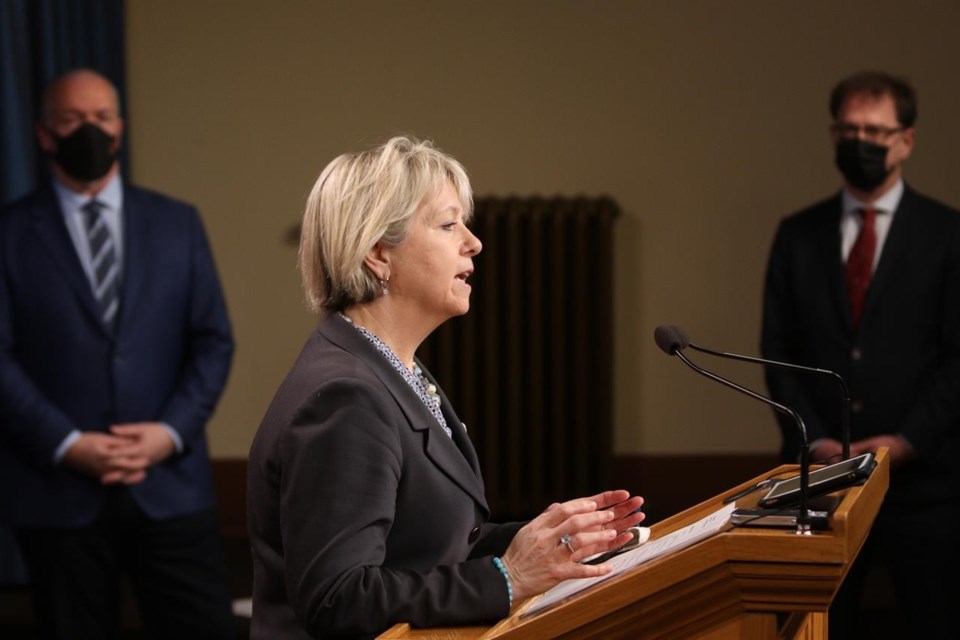VICTORIA — British Columbia's top doctor says she's confident more COVID-19 restrictions can be lifted next week as planned due to dramatic declines in cases and transmission rates.
Provincial health officer Dr. Bonnie Henry said fewer infections reflect the power of vaccines, with nearly 73 per cent of eligible residents aged 12 and up having had their first shot.
"I am optimistic in a way that I have not been for a long time, and it really has to do with how well the vaccines are working, and working over time," Henry said Thursday.
However, only about eight per cent of those 18 and over have received two doses of a vaccine as the province pushes for more people to register for a second shot.
Person-to-person transmission has dropped to the point where fewer than one person is being infected by someone who has become ill, Henry said.
B.C. recorded 153 new cases and four more deaths on Thursday, for a total of 1,729 fatalities.
The province is expected to move to the second of its four-step reopening plan next Tuesday, when, among other things, indoor and outdoor personal gatherings of up to 50 people will be allowed.
A return to travel within B.C., high-intensity indoor group exercise and team sports are also part of the next step. Henry said increased contact is expected to initially cause a rise in manageable clusters of the virus.
It will be years before there's an understanding of how COVID-19 evolves over time, but transmission is expected to happen next fall. It's not yet known whether that will amount to a bad influenza season that would be managed by local public health teams, Henry said.
"We need to be prepared for all eventualities and that is the work we're doing now. And it will be built into the next phases of our restart program."
Communal settings, such as long-term care homes, would need to have updated COVID-19 management plans as well as rapid testing, the same as for the flu, she said.
"This virus is going to be with us, we know that. But it's not going to spread widely."
As the province begins reopening in phases until Labour Day and people start travelling more, Henry said it's important to know which strains of which virus are circulating and where. As a result, the province started whole genome sequencing on every case two weeks ago to try to detect any new strain on which vaccines may not work as well.
While B.C. is ready to move ahead, "curveballs" are possible so the province is ensuring public health and lab resources are available to keep testing people, including for variants that are circulating in high numbers in some parts of the world, Henry said.
The Alpha variant, first identified in the U.K., currently makes up 54 per cent of cases in B.C., and the Gamma variant, initially found in Brazil, amounts to 42 per cent of cases. About four per cent of cases involve the Delta variant, which was first identified in India.
The province has adapted its testing strategy to use screening tests but limitations mean they can't detect every single variant or different strains of the virus that are circulating in B.C.
— By Camille Bains in Vancouver
This report by The Canadian Press was first published June 10, 2021.
The Canadian Press



